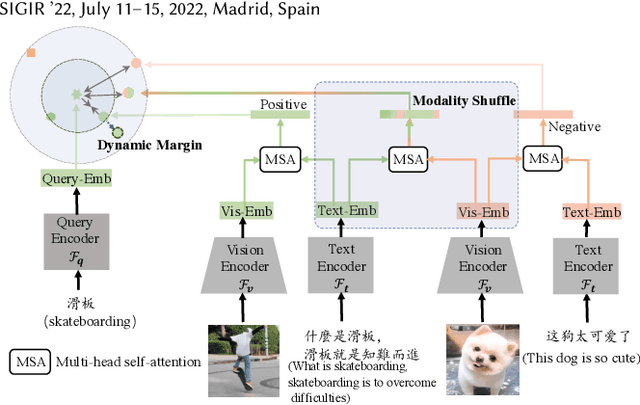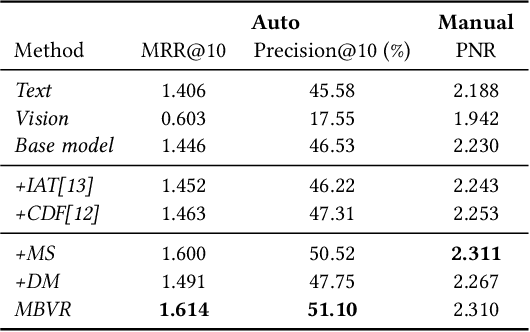Qiushi Xiao
Modality-Balanced Embedding for Video Retrieval
Apr 18, 2022


Abstract:Video search has become the main routine for users to discover videos relevant to a text query on large short-video sharing platforms. During training a query-video bi-encoder model using online search logs, we identify a modality bias phenomenon that the video encoder almost entirely relies on text matching, neglecting other modalities of the videos such as vision, audio. This modality imbalanceresults from a) modality gap: the relevance between a query and a video text is much easier to learn as the query is also a piece of text, with the same modality as the video text; b) data bias: most training samples can be solved solely by text matching. Here we share our practices to improve the first retrieval stage including our solution for the modality imbalance issue. We propose MBVR (short for Modality Balanced Video Retrieval) with two key components: manually generated modality-shuffled (MS) samples and a dynamic margin (DM) based on visual relevance. They can encourage the video encoder to pay balanced attentions to each modality. Through extensive experiments on a real world dataset, we show empirically that our method is both effective and efficient in solving modality bias problem. We have also deployed our MBVR in a large video platform and observed statistically significant boost over a highly optimized baseline in an A/B test and manual GSB evaluations.
* Accepted by SIGIR-2022, short paper
 Add to Chrome
Add to Chrome Add to Firefox
Add to Firefox Add to Edge
Add to Edge